Data Science Africa 2019
Addis Ababa, Ethiopia (3rd - 7th June 2019)
Since 2015, Data Science Africa (DSA) has held an annual summer school and workshop to train participants on machine learning and data science methods and provide an avenue for researchers to present work demonstrating the application of these techniques to problems relevant in the African context.
For 2019, DSA will have two events: DSA 2019 Addis in Ethiopia 03rd to 07th June for East Africa and DSA 2019 Accra for West Africa -date to be confirmed. This follows two events last year with DSA 2018 Abuja in Nigeria 12th to 16th November and DSA 2018 Nyeri in Kenya, and May 31st to June 8th. DSA 2019 Addis Ababa will take DSA’s traditional structure of a three days Summer School and a two Day workshop under the theme "End-to-end Data Science".
DSA 2019 Addis tentative speakers and instructors include:
- Timnit Gebru, Google AI
- Damon Civin, ARM
- Ernest Mwebaze, Google AI, Ghana and Makerere University
- John Quinn, Google AI and Makerere University
- Neil Lawrence, Amazon UK and University of Sheffield
- Billy Okal, Voyage
- Ciira wa Maina, Dedan Kimathi University of Technology
- Hellen Nigussie , Addis Ababa University
- Elaine Nsoesie, Boston University
- Moustapha Cisse, Google AI
- Martin Mubangizi, Pulse Lab Kampala
- Eric Sodomka, Facebook Research
- Michael Mayhew, Inflammatix, USA
- Daniel Mutembesa, AIR Lab, Makerere University
In the tradition of previous Africa Data Science workshops, a summer school on machine learning and data science will be held prior to the main workshop. This summer school will target graduate students, researchers and professionals working with huge amounts of data or unique datasets.
The summer school will focus on introductory and advanced lectures in data science and machine learning as well as moderate to advanced practical and tutorial sessions where participants will get their hands wet wrangling and munging datasets and applying cutting edge machine learning techniques to derive inference from the data. Lectures will be given by distinguished world renown researchers and practitioners including researchers from Sheffield University, Amazon, ARM, Facebook, Google, Pulse Lab Kampala, the AI and Data Science (AIR) lab-Makerere University, and Dedan Kimathi University of Technology (DeKUT), African University of Science and Technology (AUST) among others.
The school will also involve end-to-end tutorial sessions from professionals walking the participants through a real data analytics problem from data acquisition to data presentation. To benefit from this course participants must have some background in programming particularly programming with Python and machine learning. The registration process will include submission of worked examples in Jupyter notebooks for a data science challenge. Registration is now OPEN.
School programme outline:
Configure a DSA Environment with Anaconda
Conda is an open source package management system and environment management system for installing multiple versions of software packages and their dependencies and switching easily between them. It works on Linux, OS X and Windows, and was created for Python programs but can package and distribute any software.
Overview
Using Anaconda consists of the following:
- Install
minicondaon your computer - Create a new
condaenvironment using this project - Each time you wish to work, activate your
condaenvironment
Installation
Download the latest version of miniconda that matches your system.
| Linux | Mac | Windows | |
|---|---|---|---|
| 64-bit | 64-bit (bash installer) | 64-bit (bash installer) | 64-bit (exe installer) |
| 32-bit | 32-bit (bash installer) | 32-bit (exe installer) |
Install miniconda on your machine. Detailed instructions:
- Linux: http://conda.pydata.org/docs/install/quick.html#linux-miniconda-install
- Mac: http://conda.pydata.org/docs/install/quick.html#os-x-miniconda-install
- Windows: http://conda.pydata.org/docs/install/quick.html#windows-miniconda-install
Setup the dsa2018 environment.
git clone https://github.com/emwebaze/dsa2018materials.git
cd setup
Create dsa2018. Running this command will create a new conda environment that is provisioned with most of the libraries you need for this summerschool.
conda env create -f dsaenvironment.yml
Verify that the dsa2018 environment was created in your environments:
conda info --envs
Cleanup downloaded libraries (remove tarballs, zip files, etc):
conda clean -tp
Uninstalling
To uninstall the environment:
conda env remove -n dsa2018
Using Anaconda
Now that you have created an environment, in order to use it, you will need to activate the environment. This must be done each time you begin a new working session i.e. open a new terminal window.
Activate the dsa2018 environment:
OS X and Linux
$ source activate dsa2018
Windows
Depending on shell either:
$ source activate dsa2018
or
$ activate dsa2018
That’s it. Now you can fire up your Jupyter Notebook from this terminal and it will load all the necessary libraries.
To exit the environment when you have completed your work session, simply close the terminal window.
Troubleshooting and comments..
Use the comment section below to (a) ask questions that are not already answered (b) help your peers by providing answers to their questions, if you can.
Summer School Day 1
The first day of the data science school will start with an introduction of Machine Learning and Data Science, introduce python, jupyter notebook and pandas and Fundamentals of IoT, Data Visualisation and a tutorial on Mechanism Design. We have practical sessions for python, pandas and jupter and data Visualisation.
Time |
Activity |
Material |
|---|---|---|
08:00-09:00 |
Arrival and Registration |
|
09:00-09:30 |
Welcome and Opening Speech and Remarks |
|
09:30-10:30 |
Mechanism Design |
|
10:30-11:00 |
Break |
|
11:00-12:00 |
Mechanism Design Tutorial |
|
12:00-13:00 |
Python, Pandas and Jupyter Tutorial |
|
13:00-14:00 |
Lunch |
|
14:00-15:00 |
Introduction to Machine Learning |
|
15:00-16:00 |
Data Visualisation Lecture |
|
16:00-16:30 |
Break |
|
16:30-17:30 |
Data Visualisation Tutorial |
|
17:30-18:30 |
10 Academy |
Time |
Activity |
Material |
|---|---|---|
08:30-09:30 |
Classification |
|
09:30-10:30 |
Computer Vision and Image Analysis |
|
10:30-11:00 |
Break |
|
11:00-11:30 |
Fundamentals of IoT |
|
11:30-15:00 |
IoT Field Work |
|
15:00-16:00 |
Lunch |
|
16:00-17:00 |
Fundamentals of Bioinformatics |
|
17:00-18:30 |
Deep Learning Fundamentals |
Summer School Day 3
Time |
Activity |
Material |
|---|---|---|
08:30-09:30 |
Data Science Challenges & Hackathons |
|
09:30-10:30 |
Time Series Analysis |
|
10:30-11:00 |
Break |
|
11:00-12:00 |
Reinforcement Learning |
|
12:00-13:00 |
Spatial Analysis |
|
13:00-14:00 |
Lunch |
|
14:00-15:30 |
Modeling with Gaussian Processes |
|
15:30-16:00 |
Break |
|
16:00-17:00 |
R for Data Science |
|
17:00-18:00 |
DSA Addis Ababa SS feedback and Overview |
Call for Registration
The workshop will be organized around paper presentations and interactive panel discussions. We invite participants interested in presenting work at the workshop to submit a short abstract describing the application of data science methods to problems relevant to Africa. Please use the "Submit Abstract" button below. You will be notified whether your work will be presented orally or as a poster. These may include, for example, the following areas:
- Data Science for the Sustainable Development Goals
- Healthcare
- Agriculture
- Wildlife conservation
- Disaster response
- Geospatial modelling
- Telecommunications data modelling
- Economic monitoring
During the panel discussions, we will unite a wide range of stakeholders, including data scientists, representatives from government, development practitioners and the private sector; this will provide a unique setting in which innovative solution driven ideas can thrive.
Participants will also develop a framework for attracting young African talent, mentors and researchers from academia, the public sector and the private sector in Africa to engage in activities geared towards harnessing big data and real-time analytics for the public good.
If you indicate interest in being contacted about future Google events and opportunities, information collected in this form may be used in consideration for future job opportunities at Google. Information used in consideration for future job opportunities at Google is subject to the Applicant & Candidate Privacy Policy (http://www.google.com/about/careers/privacy).
Workshop programme outline:
Workshop Day 1
Time |
Presentation |
|
|---|---|---|
08:00-09:00 |
Arrival and Registration |
|
09:00-09:10 |
Welcome remarks |
|
09:10-09:30 |
Opening remarks |
|
09:30-10:15 |
Keynote 1 - Transparency in AI |
|
10:15-11:00 |
Keynote 2 - Machine Learning Systems Design |
|
11:00-11:30 |
Break |
|
11:30-12:15 |
Keynote 3 - Privacy, security & efficiency in the digital living room |
|
12:15-12:35 |
Talk 1- When Medicine Meets Machine Learning: Diagnosing Infection with Data Science |
|
12:35-13:00 |
Talk 2- ZINDI, Data Science Competition Platform in Africa |
|
13:00-14:00 |
Lunch |
|
14:00-14:45 |
Keynote 4: Building Stronger Data Ecosystems |
|
14:45-15:30 |
Keynote 5- Data Science for Sustainable Development Goals |
|
15:30-16:00 |
Break |
|
16:00-16:15 |
Talk 3: Africa R |
|
16:15-16:30 |
Talk 4: Analysis of Type-1 diabetes by Machine Learning Techniques |
|
16:30-17:30 |
Panel - Ethics in AI |
|
17:30-18:00 |
Day 1 Wrap Up |
Workshop Day 2
Time |
Presentation |
|
|---|---|---|
08:00-09:00 |
Arrival and Registration |
|
09:00-09:30 |
Talk 5- Bioinformatics: Its role for agricultural research and food security in Africa |
|
09:30-10:15 |
Keynote 6: Automated Driving Ecosystem: Opportunities Today |
|
10:15-11:00 |
Talk 6: Deep Learning on Graph and Relational Data |
|
11:00-11:30 |
Break |
|
11:30-12:00 |
Keynote 7- Data Science to Improve Population Health |
|
12:00-12:30 |
Talk 7: Computer Vision and Deep Learning |
|
12:30-13:00 |
Talk 8: Mechanism Design for Social Good |
|
13:00-14:00 |
Lunch |
|
14:00-14:20 |
Talk 9: Pure data for NLP |
|
14:20-15:30 |
Spotlight Talks: |
|
15:30-16:00 |
Break |
|
16:00-16:30 |
Keynote 8- Satellite Analysis for Building Detection in Africa |
|
16:30-17:00 |
Panel 2- Lessons from DSA 2019 |
|
17:00-17:15 |
Closing |
The workshop is now fully subscribed, and registration has closed.
Collaborators



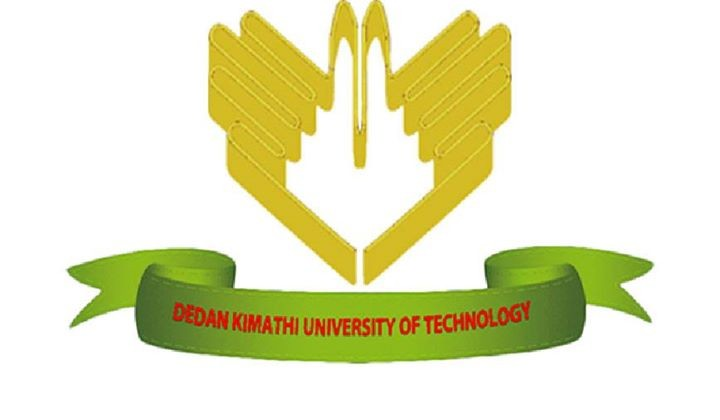
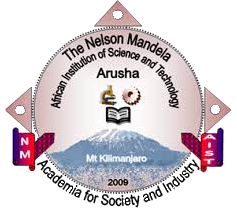
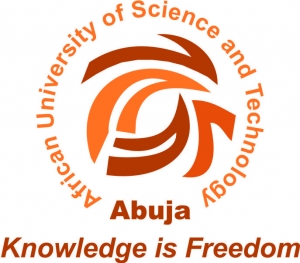
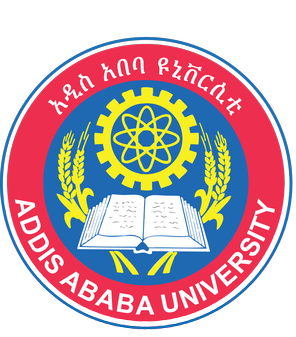

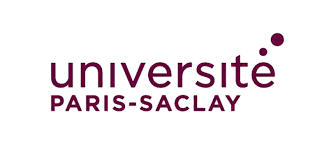
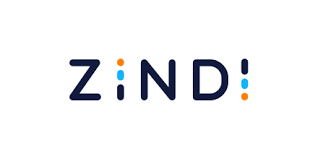
Sponsorship
Gold Sponsors
Silver Sponsors
Bronze Sponsors
Sponsoring Data Science Africa 2019 Event is a great way to communicate your commitment to support the achievement of the sustainable development goals. To become a sponsor, please contact Data Science Africa at info@datascienceafrica.org




